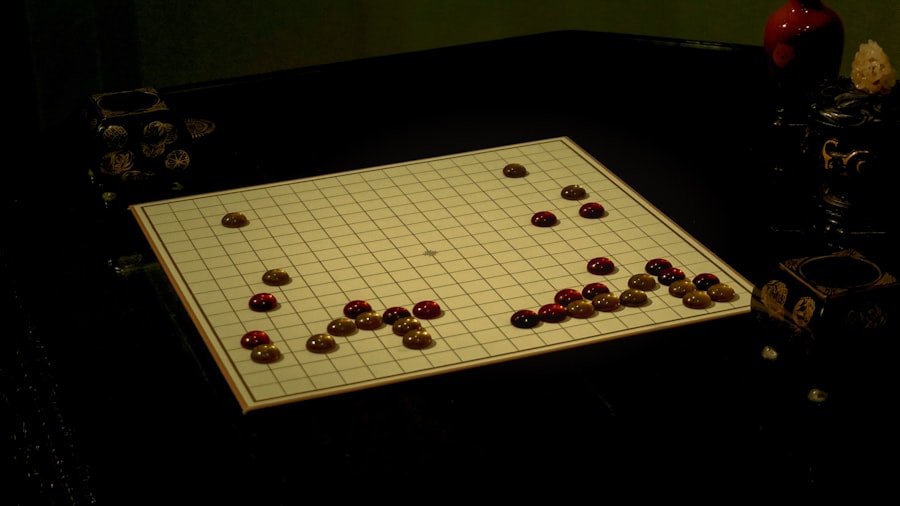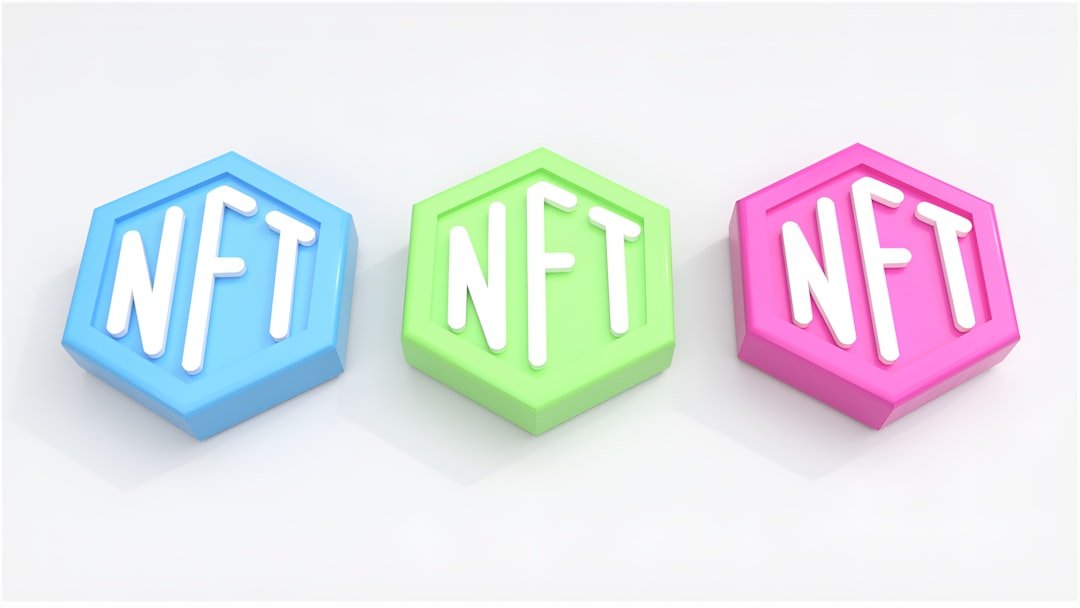Now Reading: Embracing Peaceful Exits in Games
-
01
Embracing Peaceful Exits in Games
Embracing Peaceful Exits in Games

In the realm of gaming, the concept of a peaceful exit holds significant weight. I have often found myself in situations where the intensity of competition can lead to heated exchanges and emotional turmoil. A peaceful exit allows players to disengage from a game without animosity or resentment, fostering a healthier gaming environment.
It is essential to recognize that gaming is not merely about winning or losing; it is about the experiences we share and the relationships we build. By prioritizing peaceful exits, I can contribute to a culture that values respect and camaraderie over rivalry. Moreover, the importance of peaceful exits extends beyond individual experiences.
When I engage in games with others, I am part of a larger community that thrives on mutual respect and understanding. A peaceful exit can serve as a model for others, demonstrating that it is possible to step away from a competitive situation gracefully. This not only enhances my own gaming experience but also encourages others to adopt similar attitudes.
In this way, I can play a role in shaping a more positive gaming culture, one where players feel safe to express themselves without fear of backlash or hostility.
Key Takeaways
- Peaceful exits in gaming are important for promoting sportsmanship and fair play.
- Strategies for achieving peaceful exits include effective communication and embracing conflict resolution.
- Understanding the benefits of peaceful exits can lead to a positive gaming environment and foster empathy and understanding.
- Overcoming challenges in pursuing peaceful exits requires patience, understanding, and a commitment to mental well-being.
- Embracing peaceful exits as a skill in gaming can have a positive impact on mental well-being and create a more enjoyable gaming experience for all players.
Strategies for Achieving Peaceful Exits
To achieve peaceful exits, I have found that employing specific strategies can be incredibly beneficial. One effective approach is to establish clear expectations before engaging in any game. By discussing the importance of sportsmanship and mutual respect with fellow players, I can create an atmosphere where everyone understands the value of exiting gracefully.
Setting these ground rules helps to minimize misunderstandings and ensures that all participants are on the same page regarding acceptable behavior. Another strategy I have adopted is to practice self-awareness during gameplay. Recognizing my emotional state and understanding when I need to step back is crucial.
If I find myself becoming overly frustrated or upset, I remind myself that it’s just a game and that my well-being should take precedence. Taking a moment to breathe and reflect can help me exit the game peacefully rather than reacting impulsively. This self-regulation not only benefits me but also sets an example for others, encouraging them to prioritize their mental health and emotional stability.
Understanding the Benefits of Peaceful Exits

The benefits of peaceful exits are manifold, impacting both individual players and the gaming community as a whole. Personally, I have experienced a significant reduction in stress and anxiety when I choose to exit games peacefully. Instead of leaving with feelings of anger or disappointment, I can walk away with my head held high, knowing that I handled the situation maturely.
This sense of closure allows me to return to gaming with a refreshed mindset, ready to engage in future challenges without lingering negativity. On a broader scale, peaceful exits contribute to a more inclusive and welcoming gaming environment. When players prioritize respectful disengagement, it fosters a sense of belonging among participants.
I have noticed that games become more enjoyable when everyone feels comfortable expressing themselves without fear of judgment or hostility. This positive atmosphere encourages new players to join and explore the gaming world, ultimately enriching the community and ensuring its longevity.
Overcoming Challenges in Pursuing Peaceful Exits
Despite the clear advantages of pursuing peaceful exits, challenges often arise that can make this goal difficult to achieve. One significant hurdle I have encountered is the competitive nature inherent in many games. The desire to win can sometimes overshadow the importance of maintaining respect for fellow players.
In these moments, I remind myself that competition should not come at the expense of camaraderie. By focusing on the enjoyment of the game rather than solely on victory, I can navigate these challenges more effectively. Another challenge lies in the reactions of other players.
I have experienced situations where my attempt at a peaceful exit was met with hostility or ridicule from others. In these instances, it is essential for me to remain steadfast in my commitment to respectful disengagement. By not allowing myself to be drawn into negativity, I can maintain my integrity and set an example for others.
It may not always be easy, but by staying true to my values, I can contribute to a shift in the overall gaming culture toward one that embraces peaceful exits.
Creating a Positive Gaming Environment through Peaceful Exits
Creating a positive gaming environment is something I strive for in every session I participate in. By advocating for peaceful exits, I can help cultivate an atmosphere where players feel valued and respected. One way I do this is by actively encouraging open dialogue among participants.
When everyone feels comfortable sharing their thoughts and feelings about the game, it fosters a sense of community that transcends competition. Additionally, I make it a point to celebrate not just victories but also the efforts and contributions of all players involved. Acknowledging the hard work and dedication of others reinforces the idea that gaming is about collaboration and shared experiences rather than just individual success.
By promoting this mindset, I can help create an environment where peaceful exits are not only possible but also encouraged.
The Role of Communication in Achieving Peaceful Exits

Effective communication plays a pivotal role in achieving peaceful exits during gaming sessions. I have learned that expressing my thoughts and feelings openly can significantly impact how others perceive my actions. When I communicate my intentions clearly—whether it’s explaining why I need to leave a game or discussing my feelings about a particular situation—I create an opportunity for understanding and empathy among players.
Moreover, active listening is equally important in this process. By taking the time to listen to others’ perspectives, I can better understand their emotions and reactions during gameplay. This mutual exchange fosters an environment where everyone feels heard and respected, making it easier for all participants to engage in peaceful exits when necessary.
Ultimately, strong communication skills enhance not only my gaming experience but also that of those around me.
Embracing Conflict Resolution in Games
Conflict resolution is an essential skill that can greatly enhance my gaming experience and contribute to peaceful exits. When disagreements arise during gameplay, I have found that addressing them calmly and constructively is crucial. Instead of allowing tensions to escalate, I strive to approach conflicts with an open mind and a willingness to find common ground.
One effective method I employ is seeking compromise when disagreements occur. By focusing on solutions rather than dwelling on problems, I can help diffuse tension and promote understanding among players. This collaborative approach not only resolves conflicts but also reinforces the idea that we are all part of the same gaming community, working together toward shared goals.
Promoting Sportsmanship and Fair Play in Gaming
Promoting sportsmanship and fair play is fundamental to creating an environment conducive to peaceful exits. As someone who values these principles, I make it a priority to model good behavior during gameplay. Whether it’s congratulating opponents on their successes or acknowledging my own mistakes, I believe that demonstrating sportsmanship sets a positive tone for everyone involved.
Additionally, I actively encourage others to embrace fair play by highlighting its importance in fostering healthy competition. When players understand that sportsmanship goes hand-in-hand with enjoyment, they are more likely to engage in respectful behavior during games. This collective commitment to fair play ultimately leads to more positive experiences for all participants and paves the way for peaceful exits when necessary.
Fostering Empathy and Understanding through Peaceful Exits
Fostering empathy and understanding among players is another vital aspect of achieving peaceful exits in gaming. I have come to realize that everyone has different backgrounds, experiences, and emotional responses when it comes to competition. By cultivating empathy within myself and encouraging it in others, I can create an environment where players feel supported and understood.
One way I practice empathy is by taking the time to consider how my actions may affect others during gameplay. If someone seems upset or frustrated, I make an effort to reach out and offer support rather than dismissing their feelings. This simple act of kindness can go a long way in promoting understanding among players and facilitating peaceful exits when tensions arise.
The Impact of Peaceful Exits on Mental Well-being
The impact of peaceful exits on mental well-being cannot be overstated. Personally, I have experienced firsthand how choosing to disengage from games respectfully has improved my overall mental health. Instead of leaving with feelings of anger or frustration, I find solace in knowing that I handled challenging situations with grace and maturity.
Moreover, fostering an environment where peaceful exits are encouraged contributes positively to the mental well-being of all players involved. When individuals feel safe expressing themselves without fear of judgment or hostility, they are more likely to enjoy their gaming experiences fully. This sense of security promotes emotional resilience and encourages players to return to gaming with renewed enthusiasm.
Embracing Peaceful Exits as a Skill in Gaming
Embracing peaceful exits as a skill in gaming is something I believe should be prioritized by all players. Just as we hone our technical abilities within games, developing the capacity for respectful disengagement is equally important. By recognizing peaceful exits as a valuable skill set, we can elevate our gaming experiences while contributing positively to our communities.
In conclusion, prioritizing peaceful exits not only enhances my personal gaming experience but also fosters a culture of respect and understanding within the broader community. By employing effective strategies, promoting sportsmanship, and embracing empathy, I can contribute to an environment where all players feel valued and respected—ultimately leading to more enjoyable experiences for everyone involved.
If you’re interested in creating the perfect gaming room on any budget, be sure to check out this article for some helpful tips and tricks. Having a dedicated space for gaming can enhance your overall gaming experience and make it more enjoyable. Whether you have a small budget or a larger one, there are plenty of ways to set up a gaming room that suits your needs and preferences.



























